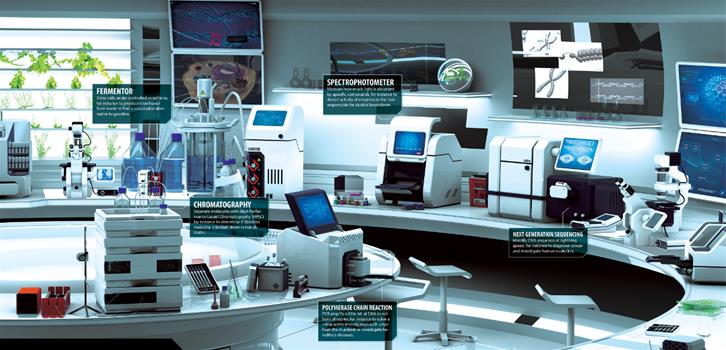Contact Admission
International Collaboration
Virtual Reality Lab (VR lab):
The goal of a virtual reality lab is to apply scientific principles to study the role of virtual reality (VR) in education and psychology. VR is predicted to be the largest computing platform of all time and is said to be a "empathy machine" that can change the world and revolutionize education. However, in the past century, media genres from radio, film, television to smartphones have been considered beneficial in learning without really having a major impact. The VR lab's goal is to uncover empirical evidence about the value of VR in education by conducting evidence-based research based on learning theory and learning principles from theories like theory. Cognitive theory of multimedia learning and cognitive load theory. Our goals are:
- Study the effectiveness of VR use in educational and psychological environments.
- Build evidence-based models describing the role of VR in educational and psychological environments.
- Identify research-based principles on how to design optimal VR learning environments.
- Combining psychological and biometric methods to better understand the value of VR
New generation adaptive VR simulation laboratory based on educational measurement technology

This project aims to develop immersive VR lab simulations with integrated educational measurement models and adaptive functionality that significantly increase learning outcomes in medical education. By applying Items Response Theory (IRT), Computerized Adaptive Testing (CAT), and immersive VR simulation technology with mathematical modeling, the aim is to create setting off a fresh start for virtual adaptive learning tools. The scientific idea of this project is to optimize individual learning opportunities for medical students at university level by applying cutting-edge knowledge in advanced simulation of biomedical lab processes, Educational measurement, testing adaptive and functional and knowledge content in medicine and medical education.
Virtual reality simulation lab to increase productivity and career standards in the biotechnology industry (SIPROS)

Our hypothesis is that virtual reality simulations can provide an effective way for employee training, but so far the technology has not been developed to train businesses in biotechnology or laboratory. Our vision is to develop virtual reality laboratories with haptic feedback gloves that accurately simulate processes and enable complex training even before production lines or research laboratories built. The technology underpinning the project is a recent revolution in the development of virtual reality glasses as well as gloves with haptic feedback, which could enable performing an impossible task previously a matter of limb. cost-effective training in complex workflows. With virtual reality technology, we will create fully realistic simulation versions, providing training and development tools to simulate workflows (workflows), process. and the actual process. Virtual reality is the only technology that allows employees to experience the intended training environment closely resembling that of operating in the real environment - thus gaining experience, which is hypothesized to be able to transfer functions work is at a very high level. SIPROS is offering a new paradigm of training and development that is not currently on the market and the biotechnology industry cannot thrive because it is beyond their core research and development capabilities.
New technology to automatically detect emotions for advanced adaptive learning solutions

The goal of the project is to create a new technology to automatically detect emotions and apply it to create advanced adaptive learning solutions to enhance science education and training in our labs. businesses.
The demand for learning products is so great that it drives the technology to evolve to provide a better learning experience. One major hurdle is the lack of software's ability to emulate a good teacher capable of reading students' emotions and adapting accordingly. By developing and applying a new technology that captures emotions continuously in real time, we can deliver a breakthrough in this field.
The start of the project is the Facial Action Coding System (FACS; Ekman, 1978). FACS is a system for classifying human facial movements by facial appearance. The movements of individual facial muscles are encoded by FACS from very subtle sudden changes in facial appearance. Due to subject matter and time consuming, FACS was set up as an automated computation system. In the current project, we will use the latest technology to evaluate facial movement.
Other news
- How Dangerous Is Nipah Virus? Medical Alert and Urgent Health Recommendations ( 14:13 - 27/01/2026 )
- Predicting Disease from Sleep – A New Breakthrough Study ( 14:01 - 13/01/2026 )
- Medical advances predicted to break through in 2026 ( 13:54 - 12/01/2026 )
- Vietnamese medical miracles in 2025 – inspiration for medical students ( 07:54 - 07/01/2026 )
- Updating the SOFA-2 Score: A New Standard in the Assessment of Multiple Organ Failure After Three Decades ( 10:40 - 31/12/2025 )
- Home AEDs: High Life-Saving Effectiveness, but Not Cost-Effective at Current Prices ( 14:12 - 18/12/2025 )
- Artificial Intelligence and Pediatric Care ( 08:27 - 16/12/2025 )
- Applying Clinical Licensing Principles to Artificial Intelligence ( 09:36 - 08/12/2025 )
- U.S. Approves Targeted Lung Cancer Therapy Datroway ( 08:43 - 25/06/2025 )
- Therapeutic potential and mechanisms of mesenchymal stem cell-derived exosomes as bioactive materials in tendon–bone healing ( 08:38 - 23/11/2023 )


















